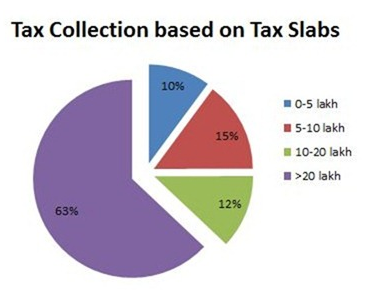Table of Contents
What are taxes?

“The best way to teach your kids about taxes is by eating 30% of their ice cream. Let them cry; it doesn’t matter. This will prepare them to pay income tax when they grow up!!”
This one’s for the layman!!
A tax is a compulsory payment to the government under the force of an act. The purpose of the collection of taxes is for the welfare of the country!!

Taxation isn’t just a modern hassle; it’s been around since the era of kings and queens in India. Back then, kings collected taxes to fund their empires, ensuring it was done in a way that didn’t hurt too much.

Fast forward to 1860, when Sir James Wilson introduced taxation in India to cover losses from the military mutiny. Talk about strange beginnings! Post-independence, the Income Tax Act of 1961 took charge, shaping our current tax landscape with amendments over time.
Albert Einstein famously said, “The hardest thing in the world to understand is the income tax.” No wonder it’s the heart of all financial experts, especially our beloved chartered accountants!

different types of taxes:
| Type of Tax | Description |
|---|---|
| Income Tax | Tax on the income earned by individuals or entities. |
| Corporate Tax | Tax on the income earned by companies or corporations. |
| Capital Gains Tax | Tax on the profit earned from the sale of assets or investments. |
| House Property Tax | Tax on income generated from property ownership or rental income. |
| Inheritance Tax | Tax on the value of assets inherited from deceased individuals. |
| GST (Goods and Services Tax) | Tax on the supply of goods and services, replacing various indirect taxes. |

GST, or Goods and Services Tax, is calculated based on the transaction amount, not the MRP (Maximum Retail Price). There are different types: CGST (Central Goods and Services Tax), SGST (State Goods and Services Tax), or UTGST (Union Territory Goods and Services Tax).
How to calculate GST:
| Scenario | Formula | Example Calculation | Result |
|---|---|---|---|
| Calculating GST Amount | GST = Taxable Amount × GST Rate / 100 | GST = 100 × 18 / 100 | Rs. 18 |
| Finding GST Excluding Amount | GST Excluding Amount = GST Including Amount / (1 + GST Rate / 100) | GST Excluding Amount = 118 / (1 + 18 / 100) | Rs. 100 |
How to calculate income tax:
Now, To calculate income tax for an Indian resident with a gross income of ₹12 lakh, let’s break down the steps based on the information provided:
Here’s a simplified table showing how to calculate the total tax payable based on the given example:
| Step | Details | Calculation | Result |
|---|---|---|---|
| Gross Income | Initial income before deductions | ₹12,00,000 | ₹12,00,000 |
| Taxable Income After Deductions | Income after exemptions and deductions | ₹10,50,000 | ₹10,50,000 |
| Apply Standard Deduction | Standard deduction from taxable income | ₹10,50,000 – ₹50,000 | ₹10,00,000 |
| Calculate Income Tax | Tax slabs for FY 2023-24 | – Up to ₹2,50,000: Nil – ₹2,50,001 to ₹5,00,000: 5% on ₹2,50,000 – ₹5,00,001 to ₹10,00,000: 20% on ₹5,00,000 | ₹1,12,500 |
| Tax Calculation Breakdown | – Income up to ₹2,50,000: Nil – ₹2,50,001 to ₹5,00,000: 5% of ₹2,50,000 = ₹12,500 – ₹5,00,001 to ₹10,00,000: 20% of ₹5,00,000 = ₹1,00,000 | ₹1,12,500 | |
| Surcharge | Additional tax based on total tax amount | 10% of ₹1,12,500 | ₹11,250 |
| Tax After Surcharge | Total tax including surcharge | ₹1,12,500 + ₹11,250 | ₹1,23,750 |
| Calculate Cess | Additional cess on tax including surcharge | 4% of ₹1,23,750 | ₹4,950 |
| Total Tax Payable | Total tax after adding cess | ₹1,23,750 + ₹4,950 | ₹1,28,700 |
Summary of Calculation:
- Gross Income: ₹12,00,000
- Taxable Income After Deductions: ₹10,50,000
- Taxable Income after Standard Deduction: ₹10,00,000
Income Tax Calculation:
- Up to ₹2,50,000: Nil
- ₹2,50,001 to ₹5,00,000: 5% of ₹2,50,000 = ₹12,500
- ₹5,00,001 to ₹10,00,000: 20% of ₹5,00,000 = ₹1,00,000
- Total Tax before Cess: ₹12,500 + ₹1,00,000 = ₹1,12,500
Surcharge:
- 10% of ₹1,12,500 = ₹11,250
Tax After Surcharge:
- ₹1,12,500 + ₹11,250 = ₹1,23,750
Cess:
- 4% of ₹1,23,750 = ₹4,950
Total Tax Payable:
- ₹1,23,750 + ₹4,950 = ₹1,28,700
So, for a gross income of ₹12,00,000 and after all deductions, the total income tax payable would be ₹1,28,700.

FAQs
What is tax in simple words?
Tax is money that the government collects from individuals and businesses to fund public services and infrastructure, like schools, roads, and healthcare. It’s a way for everyone to contribute to the functioning and development of society.
What is the tax answer?
Taxes are compulsory payments made to the government by individuals and businesses. They are used to finance various public services and government functions. Tax payments are a civic duty and vary depending on income, purchases, and other factors.
What is a tax example?
An example of tax is sales tax. When you buy a product, a percentage of the price is added as tax. For instance, if you buy a shirt for $50 and the sales tax rate is 10%, you’ll pay $55 in total ($50 for the shirt plus $5 in tax).
What are the taxes in India?
In India, there are several types of taxes, including:
- Income Tax: Paid on earnings from salaries, businesses, and investments.
- Goods and Services Tax (GST): Applied to the sale of goods and services.
- Property Tax: Paid on property ownership.
- Excise Duty: Tax on goods produced within the country.
How is tax calculated?
Tax is calculated based on your income, spending, or property value. For income tax, it’s calculated as a percentage of your earnings, with different rates for different income brackets. For sales tax, it’s a percentage of the purchase price. Specific calculations vary by tax type and jurisdiction.
Who pays taxes?
Taxes are paid by individuals, businesses, and organizations. Anyone earning an income, making purchases, or owning property is generally required to pay taxes. The specific amount and type of tax depend on various factors, such as income level and type of transactions.
How much salary is taxable?
In India, the taxability of salary depends on the income tax slabs set by the government. For the financial year 2023-24, if your annual salary exceeds ₹2.5 lakh, you are liable to pay income tax, with varying rates for different income levels. Deductions and exemptions can also affect your taxable salary.
Latest episodes







